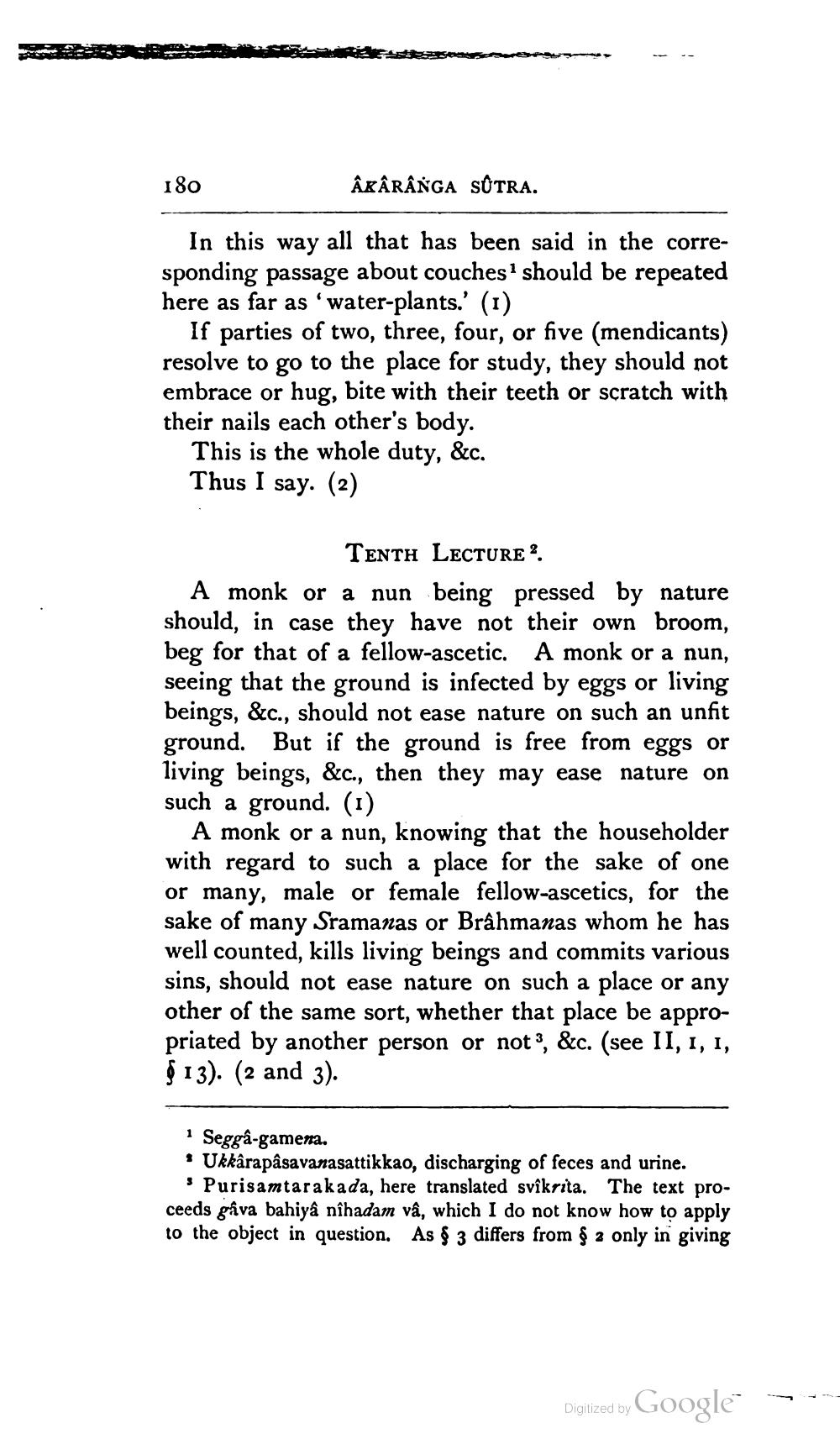________________
TE
180
ÂKÂRÂNGA SÚTRA.
In this way all that has been said in the corresponding passage about couches' should be repeated here as far as 'water-plants.' (1)
If parties of two, three, four, or five (mendicants) resolve to go to the place for study, they should not embrace or hug, bite with their teeth or scratch with their nails each other's body.
This is the whole duty, &c. Thus I say. (2)
TENTH LECTURE? A monk or a nun being pressed by nature should, in case they have not their own broom, beg for that of a fellow-ascetic. A monk or a nun, seeing that the ground is infected by eggs or living beings, &c., should not ease nature on such an unfit ground. But if the ground is free from eggs or living beings, &c., then they may ease nature on such a ground. (1)
A monk or a nun, knowing that the householder with regard to such a place for the sake of one or many, male or female fellow-ascetics, for the sake of many Sramanas or Brahmanas whom he has well counted, kills living beings and commits various sins, should not ease nature on such a place or any other of the same sort, whether that place be appropriated by another person or not?, &c. (see II, I, I, § 13). (2 and 3).
Seggâ-gamena. • Ukkârapasavanasattikkao, discharging of feces and urine.
s Purisamtarakada, here translated svîkrita. The text proceeds gåva bahiya nîhadam vâ, which I do not know how to apply to the object in question. As $ 3 differs from § 2 only in giving
Digitized by
Digitized by Google
+




